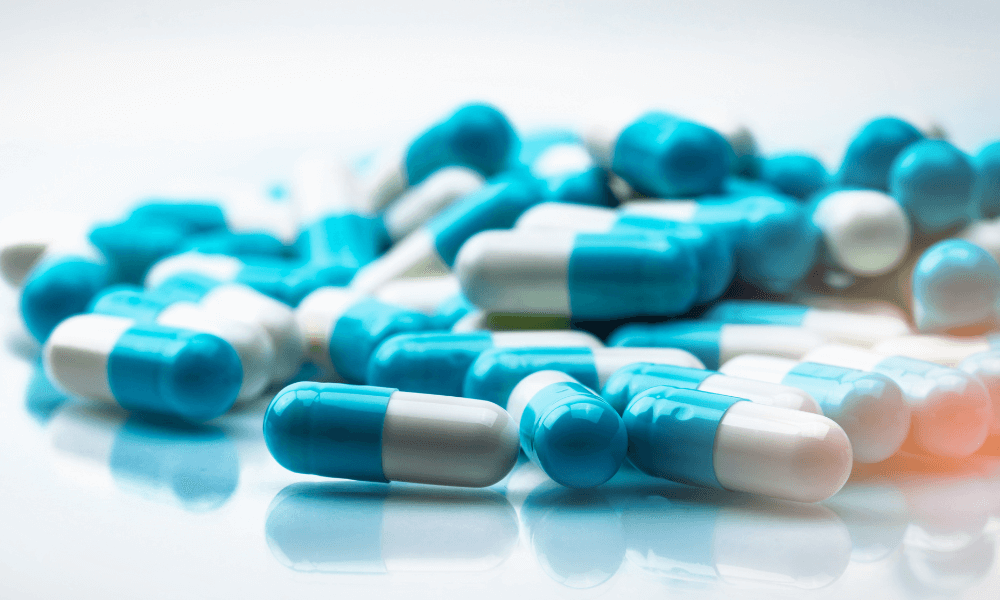Pharmaceutical and Medical Device Litigation


Key Takeaways:
- In pharmaceutical litigation cases, your defense to charges may include the learned intermediary doctrine, altered product, assumption of risk, or unrelated factors strategy.
- Medical device litigation has a number of defense strategies, including disproving negligence on behalf of the manufacturer, showing professional standards have been met, and proving negligence or misuse on the part of the plaintiff.
- While the participant paperwork involved with clinical trials will often protect a company from lawsuits, plaintiffs can still seek legal action for misconduct or negligence.
- A corporate pharmaceutical and medical device litigation attorney can help manage a company’s reputation and public perceptions by providing the following: strategic communication, media liaison, crisis management, evidence-based defense, and regulatory compliance.
In the pharmaceutical and medical device sectors, companies face a distinctive array of challenges, particularly in the context of litigation. Increasingly, these entities are targeted by lawsuits that may not necessarily reflect their commitment to healthcare innovation but rather serve the financial interests of the plaintiffs. This trend presents not just a financial threat but also potentially jeopardizes the public’s trust in these companies, which is crucial for their operation.
Financial implications aside, the real danger of such litigation lies in the potential damage to the company’s reputation. Public confidence and trust are paramount for American companies in the health sector. When these are compromised, the impact extends beyond the company to the patients and consumers who rely on their products and services.
Engaging an experienced attorney is a strategic decision for your company. Our West Virginia pharmaceutical attorneys can help prepare a defense against unfounded legal claims, help to mitigate the risks of litigation, and take measures to try to protect the image and reputation of your company so that the public continues to see your company as trustworthy and innovative in the field of health care.
Pharmaceutical Defense Litigation

The pharmaceutical industry is extremely regulated, requiring extensive testing before receiving FDA approval. However, regardless of this regulation, consumers who allege personal injury from using a drug or medical device can file lawsuits against your company.
Pharmaceutical litigation involves distinct cases where legal claims are asserted and filed by an individual or group of individuals who allege they were harmed in some way by a drug or medical device, deeming it to be defective or dangerous.
The plaintiffs involved in this type of litigation are those individuals who allege a personal injury resulting from the taking of a prescription drug or using a particular medical device.
In other words, pharmaceutical litigation occurs when a plaintiff alleges that a drug or medical device from your company harmed their well-being. When this happens, there are different defense strategies that your legal team may be able to use.
Learned Intermediary Doctrine
This defense focuses on the role of the product manufacturer in fulfilling its duty of care for providing adequate risk warnings to a learned intermediary who will be the one to interact directly with consumers. This would include healthcare providers and prescribing physicians, for example.
Altered Product
At the center of an altered product defense is proving that the manufacturer’s product was altered in a substantial way after leaving its facility. Thus, the changes or modifications made to the product by another were the cause of the plaintiff’s injury, not the original product itself. For instance, if a pharmaceutical that your company manufactured is then mixed with another drug after leaving your facility, it is beyond your control. Alterations of a product can occur by anyone who touches the product after distribution from your company and before it goes to the consumer for use.
Assumption of Risk
The assumption of risk defense argues that an individual knew of the potential risks of taking or using a product and voluntarily continued with its use. The consumer assumed the risks associated with the product, such as any potential side effects explained by the manufacturer.
Unrelated Factors
In order to be successful in pharmaceutical litigation, the plaintiff’s harm or injury must be shown to be related to the product. If a plaintiff brings a case where unrelated factors are presented, and fails to prove any direct connection between the product and claimed injury, the manufacturer may not be found responsible.
While this list is not exhaustive when it comes to potential strategies, an attorney experienced in product liability and pharmaceutical cases will be able to review all relevant facts in your case and determine which type of defense is most feasible.
Medical Device Defense Litigation
Medical device defense litigation involves not only legal matters but also the scientific issues central to the processes and manufacturing of these devices. As such, potential defense strategies for medical device manufacturers that a legal team may be able to use include:
- Disproving one or more elements of negligence on behalf of your company
- Arguing that your duty of care met medical professional standards as well as medical device industry requirements.
- Showing the cause of the injury or harm to the plaintiff was due to their own negligence. In other words, the plaintiff altered or misused the device in a way that was unforeseeable, and thus caused the alleged injury.
Is Your Company Defending Against Clinical Trial Litigation?

Critical trials are essential for growth in the healthcare and pharmaceutical industry. A plaintiff might file a lawsuit against pharmaceutical companies for any number of reasons, and often, you will be protected due to the amount of paperwork the plaintiff had to sign in the first place. However, this does not always mean your company is safe from being targeted by those who allege negligence and resulting harm.
In clinical trial litigation, the plaintiff’s attorney may claim misconduct on the part of the medical and clinical researchers and, in turn, threaten your company’s reputation and future. When this happens, you need to know what best practices to take to bolster your defense.
Even if you have taken steps to prevent lawsuits and carry medical malpractice insurance, it is still imperative that you obtain the help of an experienced trial counsel as early in the process as possible. Seek legal advice and guidance regarding your options and potential defense strategies. You will also want to work with experienced trial lawyers who are familiar with the ins and outs of a courtroom, both in federal courts and at the state court level.
In addition, your coordinating counsel will need to:
- Be familiar with the procedures involved in clinical trials.
- Be aware of the various concerns and issues of the manufacturer and other involved entities and organizations, such as the National Institutes of Health.
- Have a full understanding of federal statutes and regulations, state administrative rules, and your company’s internal policies and procedures.
Managing the Reputation and Public Perception During Legal Challenges
A corporate pharmaceutical and medical device attorney can play a crucial role in managing reputation and public perception for your pharmaceutical company clients, especially during legal challenges. Here are ways they can help.
1. Strategic Communication
Attorneys can help guide the company in crafting and disseminating clear, accurate, and consistent messages to stakeholders, including the public, investors, and regulatory bodies. This communication strategy should focus on reaffirming the company’s commitment to safety, efficacy, and ethical practices, even in the face of litigation.
2. Media Liaison
Legal professionals can act as a point of contact for media inquiries, ensuring that the company’s viewpoint is effectively communicated and that any public statements are legally sound and aligned with ongoing litigation strategies.
3. Crisis Management
In the event of high-profile litigation, attorneys can help in developing and implementing a crisis management plan.
4. Evidence-Based Defense
By building a robust, evidence-based defense that highlights the overall safety and efficacy of the company’s products, attorneys can help reinforce public confidence. Demonstrating a commitment to scientific rigor and patient safety can be pivotal in maintaining a positive public image.
5. Regulatory Compliance
Attorneys can help navigate complex regulatory landscapes, reducing the risk of future litigation and bolstering the company’s reputation as a responsible industry player.
Why Choose Orndorff Mowen PLLC to Litigate Your Pharmaceutical Lawsuit
When facing pharmaceutical or medical device litigation, you need a legal team on your side that is knowledgeable and experienced in product liability and can determine the best defense strategies for your case. The West Virginia law firm of Orndorff Mowen PLLC has extensive experience in the legal field defending companies that are at high risk of product liability litigation. As such, our practice group can provide the legal advice and guidance needed to help you through each step of the process and prepare a defense strategy specifically for your company’s needs.
Our attorneys have experience representing pharmaceutical and medical device companies in individual cases in various jurisdictions, mass tort litigation, and multi-district litigation (MDL).
Worried About a Class Action?
If your company is facing complex litigation and you are worried about a class action, consult with the experienced pharmaceutical and medical device litigation attorneys with Orndorff Mowen as soon as possible. We will review the factors surrounding your case, develop assessments, and provide legal advice on the next steps to take while also planning to be by your side, aggressively defending your company’s reputation. Call 866-481-2765 today to schedule a consultation, or use our online contact form to start the conversation.
"*" indicates required fields

